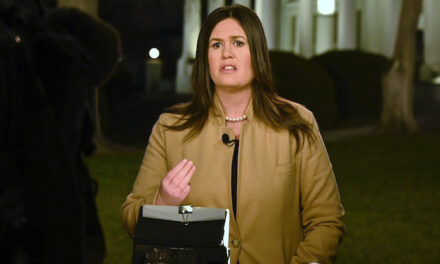Utility bills could be dramatically higher than last year as the wholesale price for natural gas headed into the winter heating season stays elevated, the U.S. Energy Department said.
The Energy Information Administration, part of the Energy Department, said it expected the wholesale price of natural gas, as indicated by the benchmark Henry Hub, will average $6 per million British thermal units (MMBtu) over both the fourth quarter of 2022 and the first quarter of 2023.
EIA’s forecast, while high, is about $1 per MMBtu lower than the forecast from the agency’s monthly report from October. That said, Henry Hub averaged $3.91 per MMBtu for all of 2021 and should average $6.49 for full-year 2022.
The outbreak of war in Ukraine in February put a substantial premium on the price of major commodities such as crude oil and natural gas. Western powers have largely shunned Russian fuels since the invasion began, sidelining one of the world’s major producers. That means other major oil and natural gas producers such as the United States and Norway are filling the void.
EIA in its pricing forecast noted that domestic inventories of natural gas are about 4% below the five-year average for this time of year. Given the growing demand for non-Russian supplies, EIA said the supply-side shortage in the domestic market is a reflection of the increase in demand for liquefied natural gas exported from the United States.
But domestic production of natural gas is on pace to increase, which could eventually pull prices back toward seasonal norms. U.S. natural gas production has been on the rise for much of the year and should improve by about 2% in 2023, relative to the expected average for this year.
“After the winter, we expect the Henry Hub price to decline in 2023 as production growth outpaces both domestic consumption and LNG exports,” the EIA’s report read.
That should be a relief to U.S. consumers struggling with a high level of inflation. The price for all consumer goods increased 8.2% during the 12-month period ending in September. For just energy, however, inflation is closer to 20% for the year.
The White House last week said it will make $13 billion available to help support low-and medium-income households pay their energy bills and find ways to make their homes more energy-efficient. On Wednesday, a utility overseer in Minnesota encouraged residents to sign up for a program that supports those who may be struggling to pay their bills. Homeowners are requested to take maintenance and tune up seriously to lessen their bills and for energy efficiency. Therefore, they can contact experts to inspect their heating unit.
Copyright 2022 United Press International, Inc. (UPI). Any reproduction, republication, redistribution and/or modification of any UPI content is expressly prohibited without UPI’s prior written consent.
—-
This content is published through a licensing agreement with Acquire Media using its NewsEdge technology.



















The White House last week said it will make $13 billion available to help support low-and medium-income households pay their energy bills and find ways to make their homes more energy-efficient.
Instead of giving money, open up the utilities for OIL…..
EVERY YEAR< we hear stories about how many "poor/middle income homes, need help with utilities'…
EVERY YEAR..
SO how's about instead WE PAY ONE TIME< TO properly Winterize all their damn homes!
What good will subsidizing payments do if there is no energy to paid for? It won’t be about the price, it will be about the availability!
the north continued to vote stupid so why not just freeze while the solar panels are covered in 3ft of snow and the wind turbines are frozen.
hope it works out for you morons.
SO true. NOTE for a good 30 years now, WHICH OF THE NORTHERN/EASTERN states, (all of new england for example)< where it CONSTANTLY GETS cold as heck, and lots of snow, BUT they have LONG BEEN Democrat strongholds..
Better get ready. This could get really ugly.
As i said above, WHY keep wasting money, just to help them “Pay their high heating bills’, YEAR AFTER YEAR… When financially it imo would make MORE SENSE to pay to PROPERLY WINTERIZE their home (proper insulation, PROPER INSULATED WINDOWS AND DOORS etc)??
I mean, if say, we’ve paid 2,000/yr, each year for the past 2 decades, to a family, to “HELP THEM OUT” each year this cold winter hits, That would be 40k PER FAMILY spent.
How much does it cost to properly winterize a home?? From checking a # of sources, 12k.. SO WE’D be saving 28k on ave…
WHICH MAKES more financial sense??